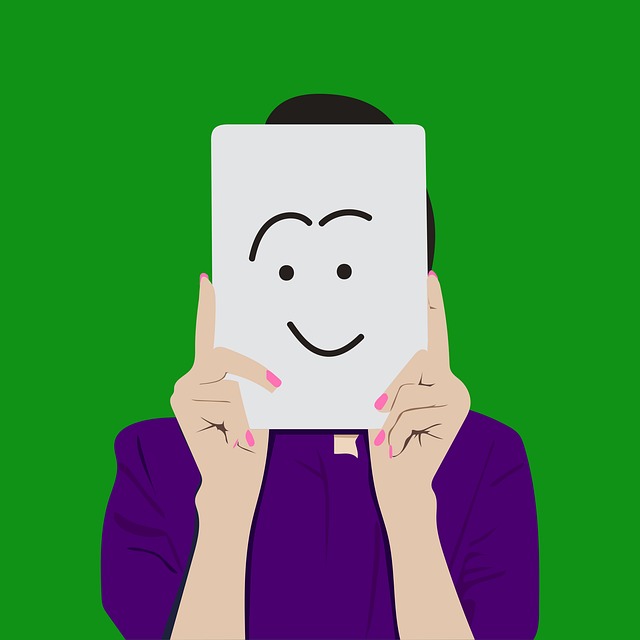Cognitive Behavioral Therapy (CBT) is an effective mental health approach focusing on negative thought patterns and behaviors. By understanding the connection between thoughts, feelings, and actions, CBT empowers individuals to identify triggers and adopt healthier responses. Key techniques include reframing thoughts, cognitive restructuring, mindfulness, meditation, and behavioral activation. These tools teach practical skills for stress management, emotional regulation, and navigating difficult situations, leading to improved coping strategies, reduced anxiety/depression symptoms, enhanced well-being, and long-term resilience.
Cognitive techniques for coping offer powerful tools in navigating life’s challenges. This comprehensive guide explores Cognitive Behavioral Therapy (CBT), a foundational approach that equips individuals with effective strategies to manage stress and adversity. By understanding negative thought patterns, reframing perspectives, and integrating mindfulness, meditation, and behavioral activation, CBT therapy enables personal growth and enhanced well-being. Discover how these techniques foster resilience, providing long-term coping strategies for a more balanced life.
Understanding Cognitive Behavioral Therapy (CBT): A Foundation for Coping

Cognitive Behavioral Therapy (CBT) is a powerful tool for managing mental health and improving coping strategies. At its core, CBT focuses on identifying and changing negative thought patterns and behaviors that contribute to emotional distress. By understanding the connection between thoughts, feelings, and actions, individuals can gain valuable insights into their triggers and develop healthier responses.
This therapeutic approach encourages individuals to challenge and reframe unhelpful cognitive distortions, replacing them with more realistic and positive thinking. CBT teaches practical skills for navigating difficult situations, managing stress, and regulating emotions effectively. As a result, it becomes easier to cope with challenges, reduce anxiety or depression symptoms, and enhance overall well-being.
Identifying and Challenging Negative Thought Patterns

Negative thought patterns can often be subtle and deeply ingrained, making them a significant target for cognitive techniques in coping strategies. One effective approach is Cognitive Behavioral Therapy (CBT), which encourages individuals to identify and challenge these unhelpful thoughts. By becoming aware of recurring negative patterns, people can begin to question their validity. For instance, if someone consistently thinks, “I always fail,” CBT prompts them to gather evidence for and against this statement. This process helps individuals recognize that their thoughts might be exaggerated or inaccurate, promoting a more balanced perspective.
Challenging these thoughts involves logical analysis and alternative reasoning. For example, encouraging the individual to consider successful outcomes in the past or potential positive results in future scenarios can shift their mindset. CBT teaches individuals to replace negative thought patterns with realistic, positive affirmations, fostering a healthier mental landscape.
Reframing Thoughts: A Powerful CBT Technique

Reframing thoughts is a core technique within Cognitive Behavioral Therapy (CBT), which empowers individuals to challenge and change negative or unhelpful thought patterns. This process involves recognizing that our thoughts are not always accurate reflections of reality and learning to view them from a different perspective. By reframing, one can transform a negative thought into a more positive or realistic one, thereby improving mood and coping mechanisms.
For instance, if someone experiences anxiety about a presentation at work, they might reframe the thought from “I’m going to fail and embarrass myself” to “I’ve prepared well and even if I make mistakes, it’s an opportunity to learn and improve.” This shift in perspective can reduce anxiety, boost confidence, and foster a more adaptive response to challenging situations. CBT teaches individuals to become aware of their thoughts, question their validity, and replace them with more balanced alternatives.
Cognitive Restructuring: Transforming Distorted Beliefs

Cognitive restructuring is a fundamental technique in cognitive-behavioral therapy (CBT) that focuses on identifying and transforming distorted beliefs into more balanced, realistic ones. This process involves recognizing negative or irrational thoughts and challenging their validity. For instance, if someone consistently believes they are worthless after a single failure, CBT would encourage them to question this thought and consider alternative explanations, like the role of circumstance or the possibility of learning from the experience.
By restructuring cognitions, individuals can change their emotional responses and behaviors. This technique empowers people to replace self-defeating thoughts with more adaptive ones, leading to improved mental well-being. It’s a powerful tool that helps break free from unhelpful thought patterns, enabling individuals to cope more effectively with challenges and stress in daily life.
Mindfulness and Meditation as Complementary CBT Tools

Mindfulness and meditation have emerged as powerful complementary tools within Cognitive Behavioural Therapy (CBT), offering individuals an effective way to manage stress, anxiety, and even depression. These ancient practices align perfectly with CBT’s focus on challenging negative thought patterns and promoting healthier behaviours. By encouraging present-moment awareness, mindfulness allows individuals to observe their thoughts and emotions without judgment, fostering a sense of calm and emotional regulation.
Meditation, particularly mindfulness meditation, teaches individuals to redirect their attention to the breath or bodily sensations, effectively grounding them in the here and now. This process can help disrupt automatic negative thinking and cognitive distortions that are often at the root of mental health issues. Integrating mindfulness and meditation into CBT therapy provides a holistic approach, enabling clients to develop increased self-awareness, improved emotional intelligence, and enhanced coping strategies for managing difficult emotions.
Behavioral Activation: Engaging in Positive Activities

Behavioral Activation, a key strategy within Cognitive Behavioral Therapy (CBT) therapy, emphasizes the power of engaging in positive activities to boost mood and mental well-being. It encourages individuals to participate in meaningful tasks and experiences that bring joy or a sense of accomplishment, thereby fostering a more positive outlook on life. By focusing on these enjoyable activities, people can redirect their attention away from negative thoughts and feelings, creating a cycle of improved cognitive functioning.
This technique involves identifying personal interests and goals, then planning and engaging in activities aligned with them. Whether it’s spending time outdoors, pursuing a hobby, or connecting with loved ones, these positive experiences can significantly enhance one’s overall mental health. Through Behavioral Activation, individuals learn to recognize and embrace activities that not only provide pleasure but also contribute to a sense of purpose and meaning, ultimately supporting long-term coping strategies in CBT therapy.
Building Resilience with CBT: Long-Term Coping Strategies

Cognitive Behavioral Therapy (CBT) offers powerful tools for building long-term resilience and effective coping strategies. By identifying and challenging negative thought patterns, individuals can learn to manage stress, anxiety, and difficult emotions more adaptively. CBT encourages a shift in perspective, helping people recognize that their thoughts, feelings, and behaviors are interconnected. This cognitive approach enables individuals to develop healthier thinking habits, which, in turn, foster better emotional regulation and resilience.
Through CBT, one can acquire practical techniques to navigate challenges, such as problem-solving skills, stress management strategies, and grounding exercises. These tools empower individuals to confront difficulties head-on, promoting a sense of control and empowerment. Over time, CBT helps people develop a more positive and realistic self-image, fostering a mindset that enhances coping abilities and resilience in various life situations.
